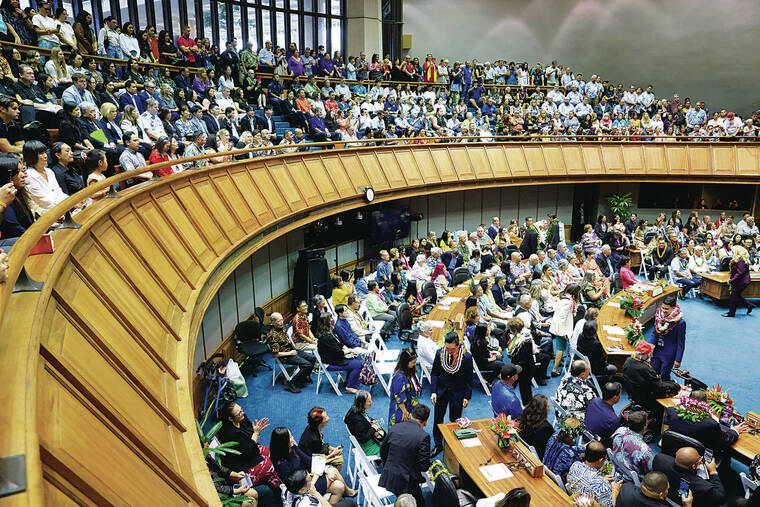Both chambers of our state Legislature have five chances this session to distinguish themselves as supporters of good government. A total of 10 worthy reform bills are currently divided equally between the House and Senate, just waiting to be heard and passed.
House Bill 1425 would establish a temporary working group to study the feasibility of a year-round legislative calendar. Just think: no more insane session calendar trying to force thousands of bills through up to six committees and six floor readings in under nine weeks of official working days. Senators and representatives not having to work through weekends, holidays and “recesses.” Hundreds of valuable bills not being passed over, deferred, ignored altogether or just dying from lack of time. Lawmakers could actually keep up with them. The public could keep up with them.
HB 322 would bring automatic voter registration to its logical endpoint, registering people getting or renewing a driver’s license, government ID, camping permit or similar state service unless they explicitly say they do not want to register to vote. Opt-out instead of opt-in — saving time and money, increasing accuracy and security, and helping Hawaii residents vote. A five-way win.
HB 134 would require the electronic filing of nomination papers. Less paperwork, fewer errors, simple. So 21st century.
HB 772 and HB 370 are a pair of admirable bills to prohibit candidate contributions to other candidates, and to increase the paltry amount that goes to Hawaii’s sadly outdated “partial public funding” program. The former bill brings to mind a New York Times expose in April of last year detailing the disturbing history of late-night parties “where lobbyists and executives seeking government contracts lined up to drop cash and checks into a metal lockbox. … As described by attendees, a typical party could bring in thousands of dollars in donations, giving some elected officials almost half their annual campaign haul in a single night.” The latter bill would help ordinary people without tens of thousands in their coffers run for office. Together, these two bills would keep some campaign money from going to shady places, and send more of it to a worthwhile place.
The Senate has just as many chances to pass legislation that would make our state government run better. Not only does SB 345 expand partial public funding, but SB 51 would establish full public financing, the Gold Standard of campaign finance reform. Seventy-one percent of Hawaii voters polled want the full option.
SB 1173 imposes a fee on the total amount of independent expenditures made by a noncandidate committee. Translation: it makes those pesky political action committees (PACs) pay something for all their deceptive, secretive ads. And the something goes to the Hawaii election campaign fund, which can always use help enabling non-very- rich people run for office. Isn’t it about time PAC money went to benefit our elections, instead of distort them?
SB 809 would close the infamous contractor loophole ban that watchdogs have decried for years. It would keep grantees, officers and immediate family members of state or county contractors from contributing to campaigns for the duration of the contract. Another overdue bill.
Finally, SB 118 would add an inspector to the Campaign Spending Commission (CSC), which has not had additional staffing since its 1973 inception. The bill would finally let CSC do its crucial work with a staff of almost sufficient size.
All of these commendable bills await hearings by the House Finance and the Senate Ways and Means committees before the dreaded “First Crossover” on March 6. Without hearings, they die. Both chambers have five opportunities to do good things for Hawaii’s government. Maybe together they can even score a perfect 10.
Brodie Lockard is member of Clean Elections Hawaii, a good government group within Our Hawai‘i.




